You may not believe how crucial it is to invest in the best external hard drives you can find. Whether you probably have extremely important, and irreplaceable, files or large projects to keep safe, an external drive can easily back those up. That way, if your laptop, Chromebook, or PC kicks the bucket, you have those files safely tucked away on that drive.
There are some fantastic secure drives and portable SSD drives that add some extra security to your files, and have exceptionally fast read and write speeds. Still, the best external hard drives are more reasonably priced, which means you can spend on getting more storage space. And, they might be the perfect solution if you don’t need the fastest speeds or something that can survive getting knocked around in the bottom of a bag.
Because you can take the best external hard drives wherever you go, and can store a ton of data, these drives are perfect for backing up important files and taking them on the go. So, with Black Friday and Cyber Monday approaching, along with all the deals that brings, there's never been a better time to check out the best external hard drives you can buy today.

Backup your NAS drive with this cloud storage solution
IDrive, the cloud storage veteran, delivers tons of storage online for an incredibly small outlay. 5TB for $3.98 for the first year is unmatched till now and so is the support for unlimited devices and the extensive file versioning system available.
When buying the best external hard drive for your needs, you need to make sure you get a device that can safely and securely store your important files. Reliability is of the utmost importance here, as you do not want to buy an external hard drive that fails on you - making you lose all your important backups.
The best external hard drives will also be quick - either because they use SSD (Solid State Drive) technology, or because they use the latest connectivity technology, such as USB-C.
Buying the best external hard drive for your needs involves figuring out how much space you need. You don't want to buy an external hard drive that's too small, end up running out of space and buying another one. However, you also don’t want to pay over the odds for storage space you'll never need.
In addition, the best external hard drives must also be dependable and rugged, so you can safely store your data without worry. The best external drives must also be light enough to carry in your bag, with large capacities so that you can keep your data safe when traveling.
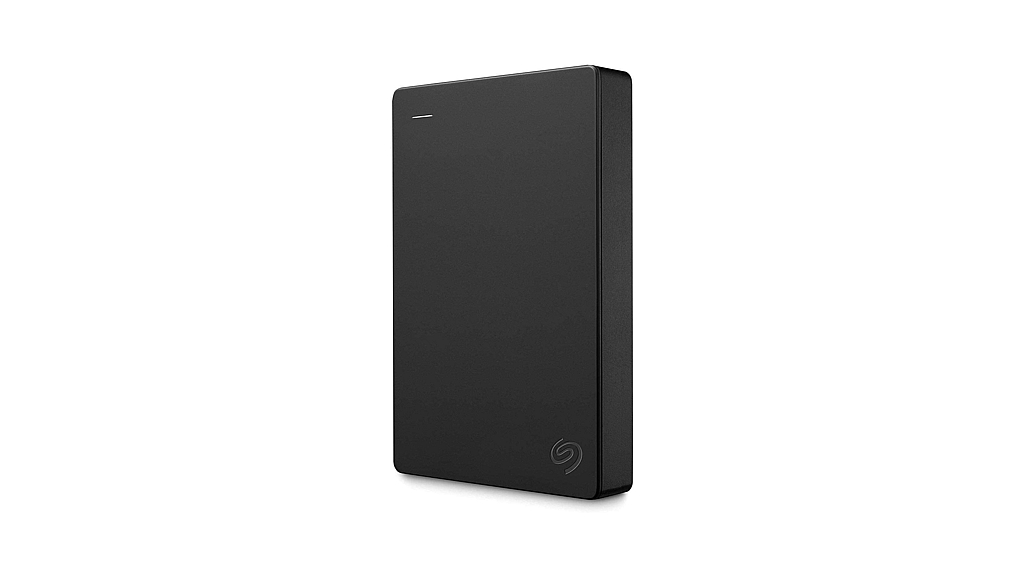
For the price that until recently used to get you four, Seagate offers five TB of storage in a small device that fits in your pocket and can be used across many platforms. It measures 7.62cm by 11.43cm and is only 1.9cm thick (3 x 4.5 x 0.75 inches) and weighs slightly over 200 grams (about half a pound).
One differentiating factor is the offer of a 1-Year Data Recovery Warranty, although we should stress that they are not magic if your drive is wrecked. You should always backup your data. Yes, even your backups should have redundancy if you're serious about it. How good is your backup if when you're trying to restore it you find the drive is dead?
Speaking of "backups of backups", this drive is available in several colors so you might want to buy it in red if you want it to stand out in a drawer full of black HDDs, or use different colours to separate different projects while keeping track of "which drive contains what". Beats reading stickers.
Its 5Gbps USB 3 interface makes it very fast and compatible with everything. Seagate would like you to install its "Dashboard" software for Windows and Mac OS, yet the drive works perfectly fine on any OS without it. Space-thirsty XBOX One X users will love to fill with games. It has no security or built-in encryption, but there are plenty of more expensive drives that provide that functionality. Want to know more?
Read the full review: Seagate Backup Plus 5TB
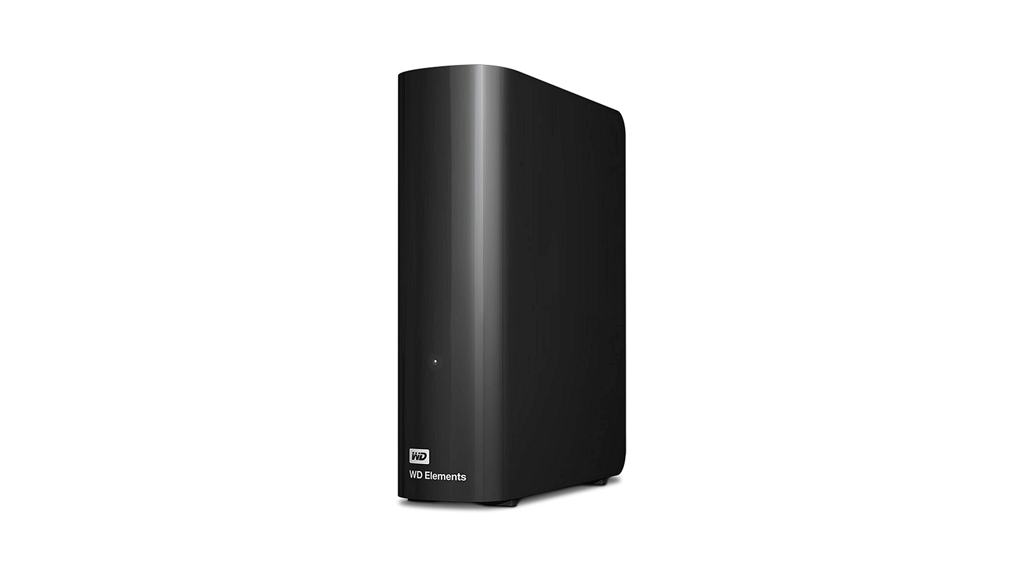
WD has designed its Elements drives with an attractive case that stands vertically. This seemingly trivial fact not only saves desk space but also keeps the drive's internals cooler. Its top and bottom vent holes.
In the guts of the WD Elements you will find a 3.5-inch, desktop SATA drive capable of 6Gbs transfer rates with the added USB 3.0 to SATA interface. When stacked vertically and with plenty of air gap around, the drives should last much longer than internal ones packed close to a hot CPU or stacked horizontally on top of one another.
The product is pre-formatted with NTFS making it ready to use with Windows computers, a handy gesture considering that if you attempt to do a a full-format -as opposed to a "quick format"- on a capacity as large as 12TB you might end up waiting all day for it to finish. Mac users, of course, can just plug and reformat the drive, after a little wait it will work as well.
As a desktop drive inside an external enclosure, the WD Elements are not USB-port powered drives, each comes with its own wall wart style power adapter about the size of the average cell phone charger -with a barrel connector.
While 12 terabytes should be enough storage expansion to keep you happy for a long time and store plenty of backups, work files or entertainment, larger versions are available:, capacities start at 3TB and go up to four, six, eight, ten, 12, 14, 16 and up to a whopping 18TB. If you’re looking for the most storage for your money, look no further.
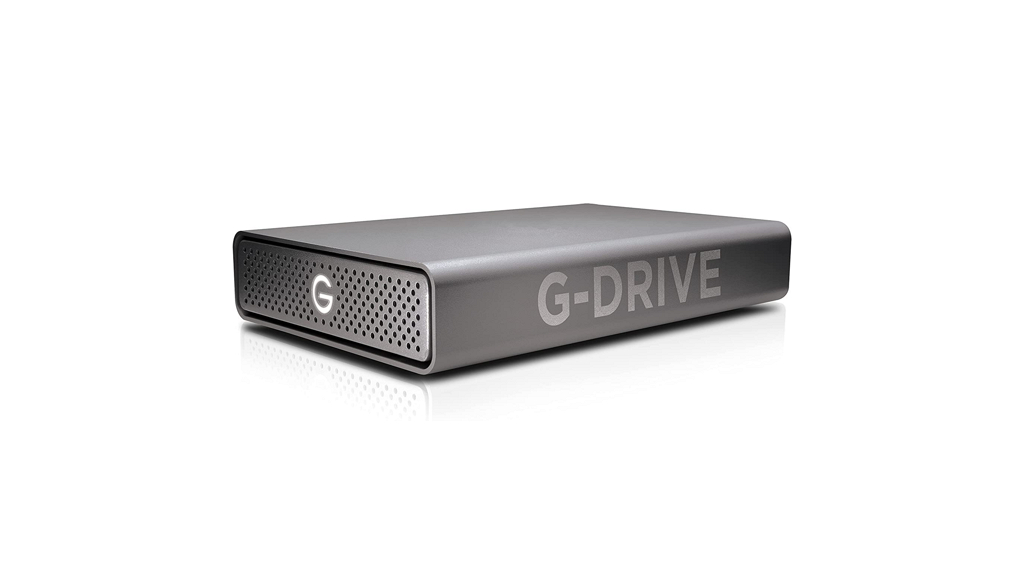
If you take an enterprise hard drive and put it inside a durable aluminum case with a portable, stylish design you would get a great external hard drive. But if you added one USB-C port capable of working at 5 GBps and two Thunderbolt ports plus you pre-formatted the drive to be macOS ready, then you have the ultimate Mac external hard drive.
The G-Drive Pro delivers just that by using a fast 7200 RPM class Ultrastar HDD capable of up to 195 MB/s inside its attractive aluminum case. The 18TB version is the most impressive of a family of high capacity drives that start at 4TB. Its pair of Thunderbolt ports means you can hook six units to one another with a single cable going to a Mac (or PC).
The drive comes with an AC power adapter, but can function without it as well when powered via USB 3.2/Thunderbolt, making the power adapter optional and increasing the portability of the drive. Thick as a pair of books, it is small enough to to carry in a backpack without the AC adapter and the tangled mess of wires you get with other drives.
A Thunderbolt 3 cable is included and SanDisk also provides a generous 5-year warranty, making the case for choosing any other drive rather hard.
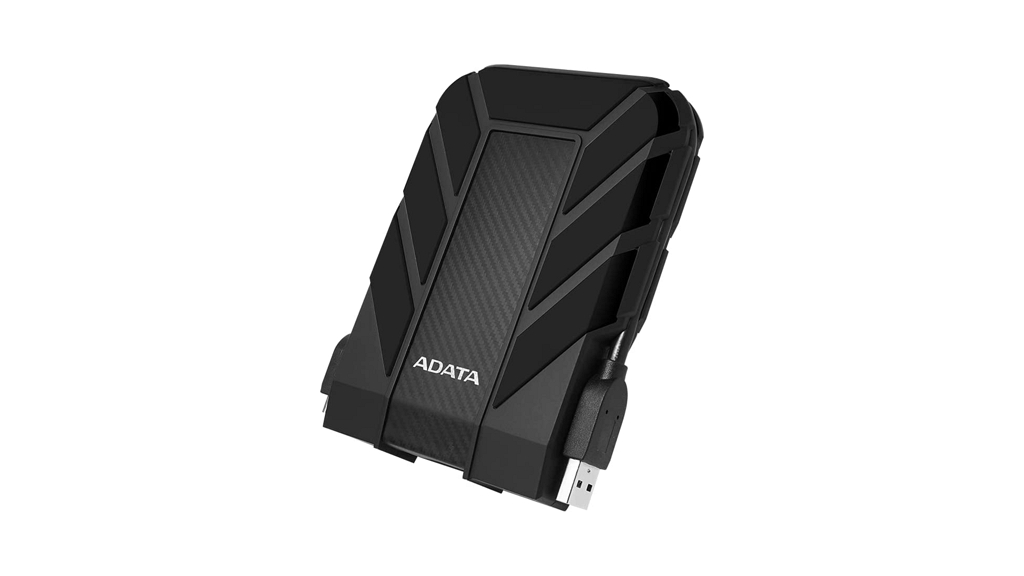
With tiny moving parts, Hard disk drives (HDDs) are fragile. All your data can be inaccessible in a second just by a mishap. Most of the failures can be attributed to damaged disk surfaces caused by physical shocks; being hit, falling over or dropped. Sudden shocks, especially while in use, can cause the head to crash or damage the platter. Just exposing it to the elements can ruin your data and your day. That's why if you use external drives while outdoors a regular external hard drive becomes a risky proposition.
An IP68-rated device can withstand dust, dirt, and sand, and can be submerged up to 1.5m under water for 30 minutes. Sounds good? Well, that's the kind of certification rating the ADATA HD 710 Pro packs up its sleeve. The firm went above and beyond to protect HDD internals with a silicone casing, triple-layered construction and vibration sensing technology so it can withstand falls from 1.5m. We reviewed the earlier models when they were more expensive and less attractive, here.
It’s fast with a 5Gbps USB 3.1 interface and with its 4TB capacity it’ll suit the needs more than enough for the average mobile worker on the go. The firm provides this model in four colours which makes separating projects by color-coded drives a breeze, believe me you don't want labels in an outdoors environment. It's "wrap-around" system means the cable is always with the drive so it doesn't tangle or get in the way. Super useful when taking the drive with you in a backpack.
The icing on the cake comes in the form of ADATA's three year warranty.
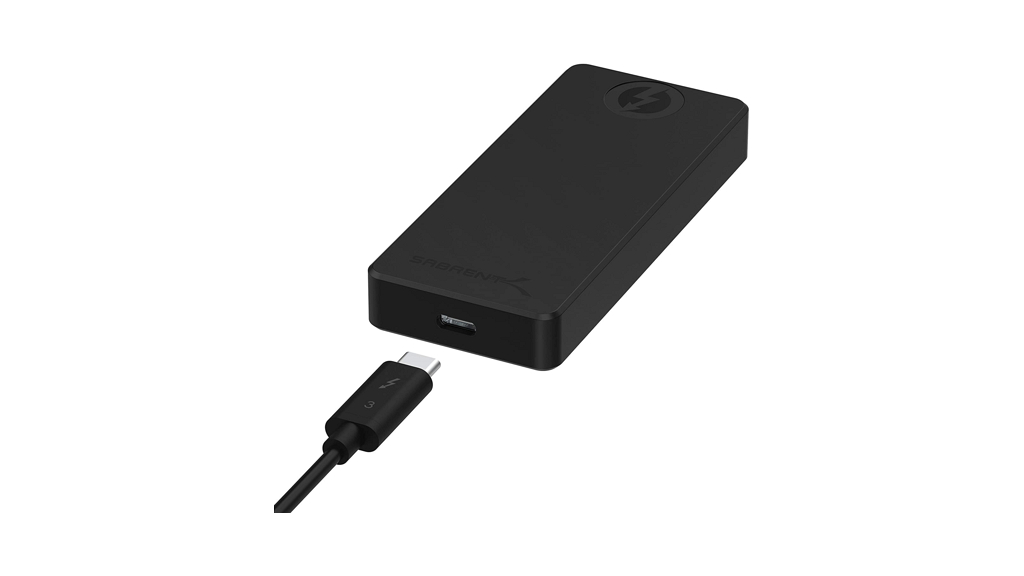
With an aluminum enclosure that ensures durability while providing great heat dissipation and a very portable size plus super fast speeds the aptly named Rocket leaves little reasons not to choose it. It is available in capacities of up to 16TB and with your choice of flash memory type. It supports the latest fastest standards like Thunderbolt plus you don't need to mess with ports as it's got only one: a USB-C connector in the back that automatically switches between TB3 and USB 3.2 modes.
Besides its superb compatibility with Windows, Mac and Linux, it offers blazing fast transfer speeds of up to 2700 MB/s when connected to a computer supporting Thunderbolt 3 or higher. If however you connect it to a computer with a USB 3.2 port, the speed drops down to a still very speedy 900 MB/s.
The performance of flash based storage also depends on the kind of flash memory used: QLC flash memory is best suited to read-intensive workloads, while TLC flash memory is best suited to write-intensive workloads. Sabrent wisely offers this drive in both QLC and TLC versions, letting you decide based on your work and usage requirements. The price difference is only $100 at time of this writing between QLC and TLC for the 4TB drive, and the TLC version offers speeds of up to 2400 MB/s and 1800 MB/s R/W.
It boasts an integrated temperature and health monitoring system that should prevent it from getting too hot. Something that worried owners of its "Nano" sibling.
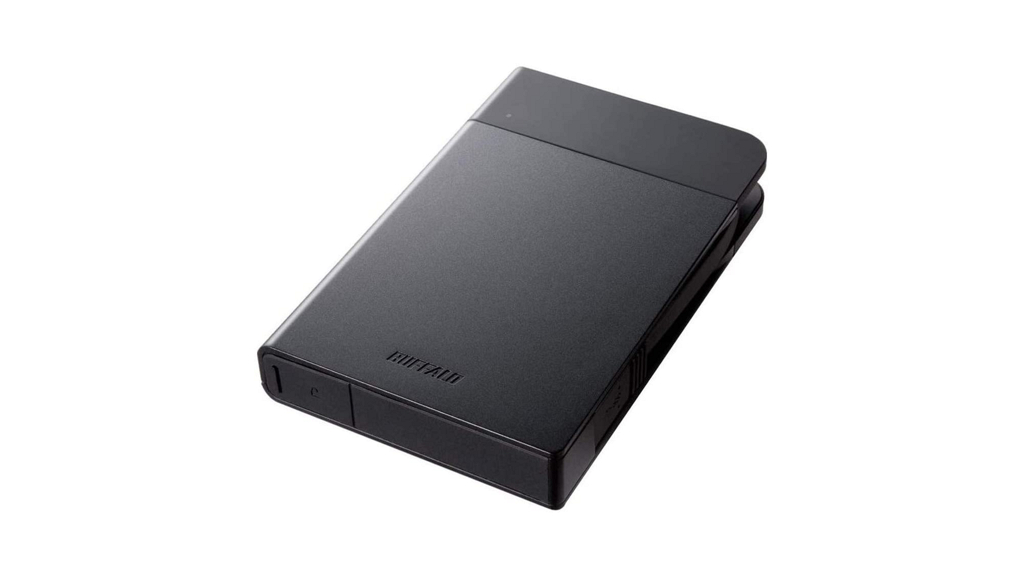
Water-resistant and shock-proof, the MiniStation Extreme NFC from Buffalo isn't indestructible, but it's a nice change from some of the dangerously flimsy external hard drives available.
The rugged chassis stores a 2.5-inch laptop hard drive enclosed in shock-absorbent bumpers designed so the HD can survive drops from up to 1.2 meters (4 feet). It won't survive being dropped out of a window, but it'll be fine being knocked off a table. The IP5X certification means it is almost dust-proof, and the IPX3 certification means it can handle a water spray at up to a 60-degree angle.
A key feature is its 256-bit AES encryption with near-field communication (NFC) capability, allowing it to be unlocked with a simple touch of a smartphone. With NTFS pre-formatted, it can be used immediately with a Windows computer. Mac users can format it into HFS+ if they wish so, of course. Better yet, if you format it as exFAT, it will support Mac, PC and the Playstation 4 and 5 game consoles all at once.
The drive comes preloaded with Buffalo's "ModeChanger" utility for Windows and Mac that switch it from Open to Secure and vice-versa. Mode switching takes less than a minute and the drive must be reformatted after that.
The LED lights at the front of the drive light up green for USB 2.0 and blue for USB 3.0 connection. Its wraparound USB cable -permanently attached at one end saves you from losing the cable but if you need a longer cable you'll have to use a male/female cable in between.
Read the full review: Buffalo MiniStation Extreme
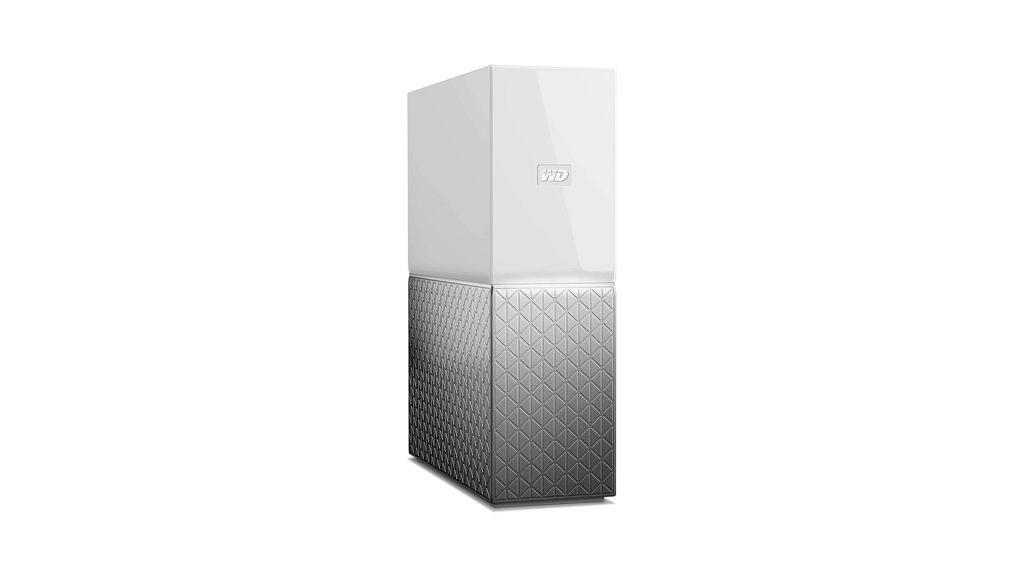
While cloud storage is convenient, your data is at the mercy of your wallet. If you stop paying, your cloud account is gone and your data sinks into oblivion with it. The solution is to make a hard drive sitting at your premises its own cloud-accessible server.
Western Digital is no newcomer to this field, we reviewed one eight years ago. The latest iteration has the same vertical format, but with a minimalistic and stylish design that combines white and some textured silver at the bottom. It has great internal air flow thanks to ample vents at the top and bottom of the case. At its rear panel you will find a 5Gbps USB 3.0 port to plug an external drive or flash drive and a Gigabit Ethernet port.
Setup is as simple as plugging the power adapter, connecting the included network cable to the RJ45 socket and to your broadband router. Then you create a "WD My Cloud" account and associate it with the Android or iOS app -although that’s not mandatory. You can also access its contents by loading mycloud.com into a web browser, from there you can download, upload and manage content, including streaming of photos and videos saved on your My Cloud device. Synchronization features with Google Drive, OneDrive, and Dropbox are also provided.
With a single internal hard drive, it has no redundancy. You can plug into it an external HDD of identical capacity or purchase the “Duo" version that comes with dual, mirrored drives from the factory. WD's two-year worldwide warranty is the cherry at the top .
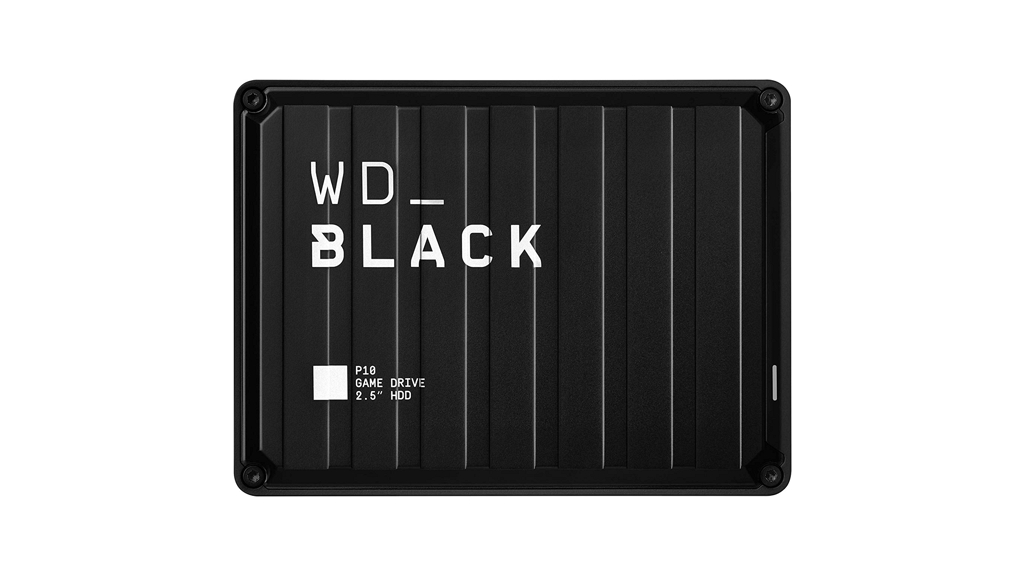
It's not a shipping container but it looks like one, a black rectangle with ribbed sides and hex screws. In includes the familiar small activity LED of many external drives. It features a USB 3.2 Gen-1 interface at 5Gbps connected via a USB Micro-B connector at the back side. A 18-inch (45.7 cm) A-to-Micro-B is also included.
What sets this drive apart aside from the gaming aesthetics is its total compatibility. Since it comes pre-formatted with the ExFAT file system in addition to being compatible with PCs and Macs it's plug-and-play compatible with the Sony PlayStation 4, PS5 and the Microsoft Xbox One.
Inside it there's a 2.5" 5,400 rpm SATA drive so don't expect SSD speeds, but 140MBps at most. This is intended mainly for storing downloaded games to move back and forth to your console's internal storage. For PC users, the WD Drive Utilities app and the WD Security app can be downloaded to set passwords, check the drive's health and perform maintenance tasks.
It is also well suited as long-term multimedia storage hooked up to a PC or large-screen smart TV from Sony or a recent Samsung as well - some smart TVs support NTFS and FAT32 or NTFS and ExFat, very rarely do they support all three file systems.
WD sales literature will tell you this stores 150 games, but game sizes vary widely. The firm puts the average size per game at 36GB while some reviewers claim it's 80GB nowadays. In any case, it's a lot of storage to expand your gaming system.
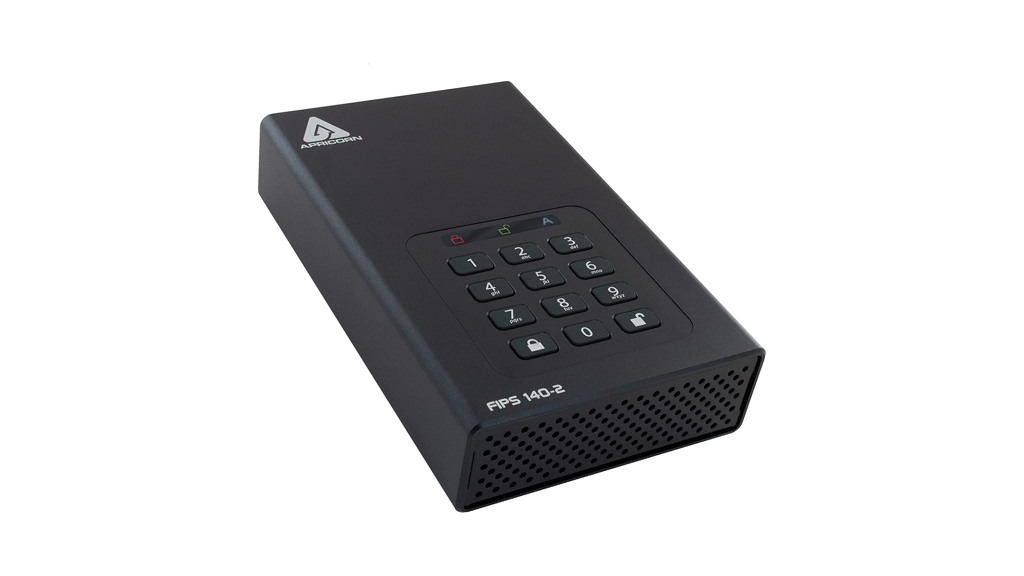
If you deal with any sensible information leaving it in an unencrypted drive is risky. While encryption can be done in software with a high degree of fine-tuning, nothing beats a purely hardware-based solution that frees you from the software-configuration complexities.
The Aegis Desktop 4 TB drive from Apricorn is an encrypted external hard drive available in capacities from 2TB up to 18TB that comes in a sturdy aluminum casing 4.5”x7.2” and 1.5” thick. Its Padlock button panel at the top resembles the familiar cashpoint or ATM layout with 0-9 digits plus Cancel and a Lock/Unlock key. Three clear indicator lights show its status: locked (red), unlocked (green) or Admin Mode (blue). All the configuration is software-free.
There is a perforated ventilation panel on the front of the drive, on the back there’s its USB 3.0 port, power connector, an On/Off switch, and a lock slot for anchoring the drive to a desk. It comes formatted with NTFS file system but you can use any file system. Internally it uses a 3.5-inch encrypted hard drive, and the circuitry doing the encryption is covered by a layer of epoxy coating protecting it from physical attacks.
After initial set up with a 7-digit to 16-digit code, operation is worry-free and configuration-free. If you lose your password there is no way to access the drive, and if the internal drive is removed and inserted into another PC its contents are unreadable as the data is encrypted before being sent to the drive for storage.
It has handy features like unattended auto lock, and the drive can auto-lock as soon as the USB connection is lost -e .g. if the USB cable is removed. It is exceptionally suited for scenarios where software-based encrypted devices can't function such as diagnostic machinery or any embedded system.
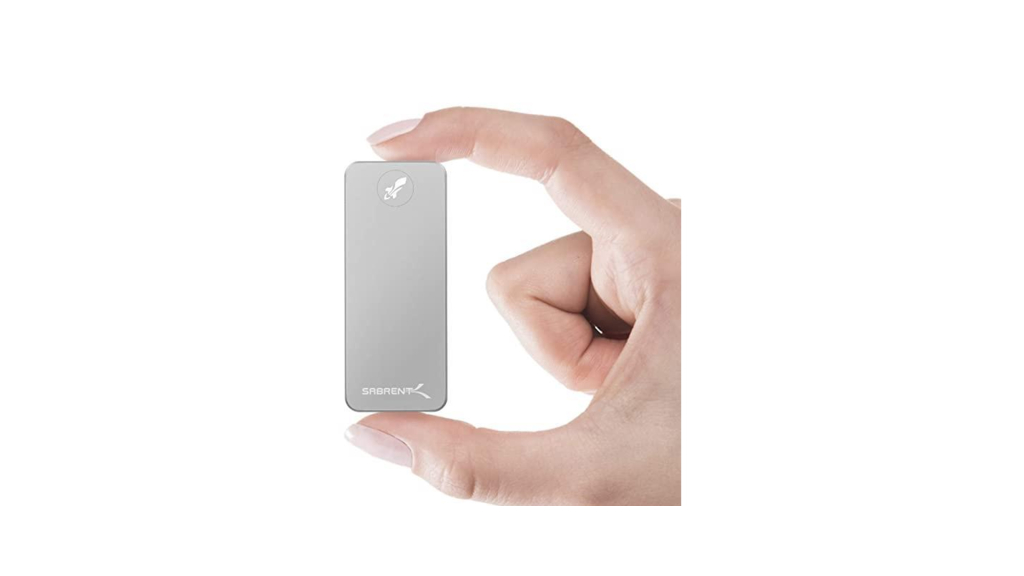
Sabrent's Rocket Nano drive comes in a fantastic aluminum case resembling a very large thumb drive and is powered by a USB 3.2 Gen 2 port which doubles performance over a USB 3.2 Gen 1 port. It is powered via the USB port and both USB-C and Type-A cables are included. It is also totally OS-agnostic, it works on Windows and Mac OS.
It is handy to put in your pocket -sadly there doesn't seem to be a way to attach it to a keyring- for PC work on the road. The rocket Nano measures 2.75" tall and weighs just 2 ounces, making it a great option for storing backups when upgrading a NVMe SSD. Benchmarks show impressive 967 MB/s read speeds, so this device is a good option to boot operating systems on systems with limited internal storage but supporting 10Gbps USB 3.2 Gen 2.
Due to its passive cooling using the case itself for cooling some reviewers have complained that after extensive use the units gets hot to the touch. Might not pose a problem for people leaving it plugged in but caveat emptor. So far, SSDs can't get much smaller and lightweight than this. Maybe it’s got a niche for use in controlled temperature environments.

The best external hard drive: How we choose them
The biggest deciding factors when it comes to data transfer rates are the connection the drive uses, and whether it is a standard hard drive or a solid state drive (SSD). Many external hard drives utilize USB 3.0 connections. However, for faster speeds, you'll want USB 3.2 Gen 2x2 USB Type-C or Thunderbolt 3 or 4 connections. You'll also need to ensure your PC or laptop also has a compatible port.
You'll also need to think about how much storage space you need. The best external hard drives offer a range of storage space. We'd recommend 1TB to start, as that gives you plenty of space to store your files without costing too much money. That’s certainly good enough for most users.
However, if you’re dealing with large files – such as high-resolution photos and videos – in your typical workload, you should consider buying one with a bigger storage space. Luckily, many external hard drives offer terabytes (TB) of storage space for not much more money.
These are the external hard drives and SSD that we have reviewed recently
Sandisk Professional G-Drive rugged external 2TB SSD
Seagate OneTouch 1TB external SSD (2021)
We've also featured the best rugged hard drives
from TechRadar: computing components news https://ift.tt/2TlQI3n
via IFTTT
No comments:
Post a Comment